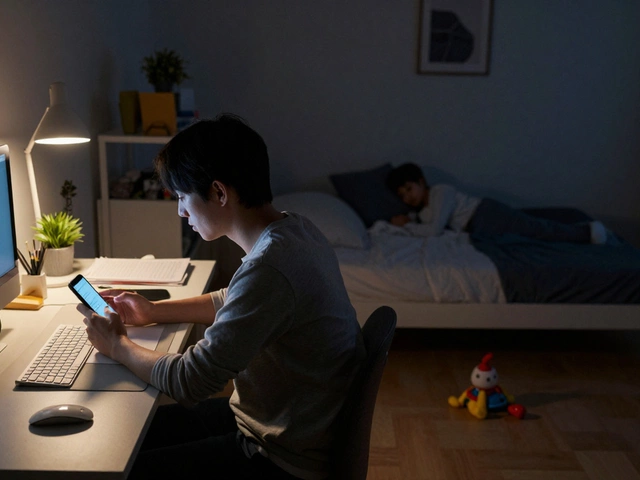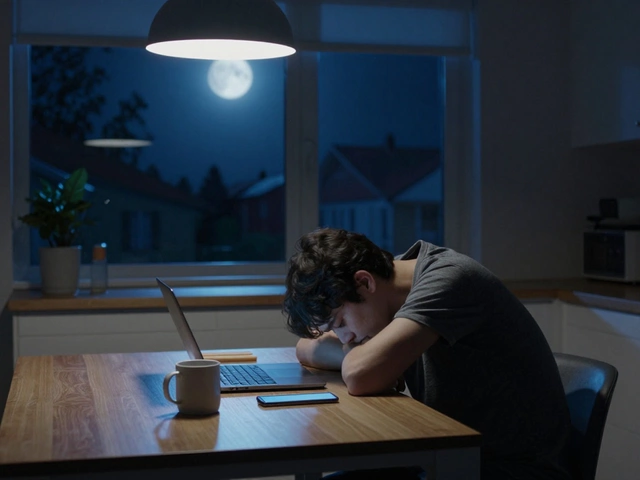If you feel like you’re carrying your laptop from the breakfast table to the couch and back, hoping for a magical pause button, you’re not the only one. By now, the whole idea of work-life balance might even sound like a tired meme, but for many of us, it’s the golden ticket we’re chasing—sometimes, without a clue of what it even looks like. Gallup’s latest numbers say 52% of workers feel stressed daily. If that’s not you, congratulations. If it is, keep reading because you deserve a happy life outside of Zoom calls and to-do lists.
Why Work-Life Balance Got So Complicated
This wasn’t what we expected when we first started working from home or dreaming of jobs that offered flexibility. Instead, the boundaries blurred; you’re answering emails at dinner or thinking about deadlines at midnight. Part of the blame falls on smartphones—94% of Americans aged 18-49 own one, and most check work notifications outside office hours. Hybrid jobs, while a blessing, also keep us ‘on’ all the time. Knowing when to step away is tricky.
And who sets the rules? There’s no playbook. Some people thrive in constant hustle, swearing by 12-hour stints. Others need regular breaks or compact 9-to-5 days to feel human. The problem? There’s a lot of advice but no one-size-fits-all answer. If you’re a parent juggling school runs, a remote worker living out of co-working spaces, or someone trying to travel more, your balance is going to look different. Research from the American Psychological Association found that employees with more control over their schedules report less stress and higher job satisfaction—but not everyone’s boss is on board.
Plenty of companies now offer things like unlimited paid time off, four-day workweeks, or remote-first setups. In Denmark, the average workweek is just 34 hours, and they regularly top global happiness rankings. But here’s the truth: even with perks, many folks don’t use all their vacation days (Americans left about 768 million days unused last year). Sometimes, the pressure is internal—we fear falling behind or letting teammates down.
The idea of work-life ‘balance’ itself can be a trap. Life isn’t perfectly split between equal parts. Sometimes, work will need more of your attention, or maybe family, or your own well-being. Thinking of balance as more of a fluid dance than a tightrope helps. What does ‘enough’ feel like to you? Time for hobbies? Your weekends unplugged? Not dreading Sunday evenings?
Building Your Kind of Balance
Forget the perfectionism. The real sweet spot is finding a rhythm that matches your responsibilities, values, and, honestly, your mood. A study in 2024 from UCLA showed people who schedule small ‘buffer times’—pauses between work and home life—feel 36% less stress. That could be as easy as switching Spotify to your favorite playlist when you close your laptop or walking around the block before you tackle dinner.
Let’s talk about boundaries. Define them. Tell your co-workers you log off at 6 p.m. Set your phone to ‘Do Not Disturb’ outside work hours. Don’t treat every request like an emergency. Current research by SHRM says people who protect their personal time are up to 40% less likely to burn out. If you’re a manager, set the tone. Colleagues model after leaders—if you message at midnight, others might feel pressure to do the same.
Prioritize ruthlessly. Write down what actually moves the needle at work or brings you joy at home. Be honest: which meetings could be emails? What tasks can you delegate or delay? Most people underestimate how much time “hidden” work eats up—checking Slack channels, troubleshooting Wi-Fi, small talk that stretches for half an hour. Try single tasking. Research backs it up: switching between tasks can reduce your productivity by up to 40%.
If your employer isn’t open to flexible hours, ask for small changes. Could you swap start times with a coworker, compress your workweek, or work from a café one day? Tiny tweaks often add up. And if you’re a freelancer or self-employed, set client expectations early. Draw a line between your workday and downtime, and hold yourself to it. The freedom of being your own boss can easily turn into working all the time, unless you decide otherwise.
Physical environment matters, too. Separate your workspace from living areas, even if it’s just a corner with a laptop stand and plant. Studies show that people in tidy, dedicated work zones feel more ‘done’ when they leave that space. This helps your brain recognize, “Work’s over, now I’m home.”

Tools, Habits, and Hacks that Help
Technology got us into this mess; it can also dig us out. Use apps like RescueTime to see where your hours really go, or Focus@Will to cut distractions. Automate anything you can—set bills to autopay, use grocery delivery, or automate repetitive work tasks in tools like Zapier. Cutting just 30 minutes of “busywork” a day gives you around three extra hours a week for, well, anything else.
Don’t underestimate the power of routines. Anchor your day with rituals that signal transitions: morning coffee before emails, turning off your computer and lighting a candle when work’s done, Friday night movie with family. Routines keep you grounded during chaos. Data from Harvard suggests people with consistent daily habits sleep better, handle stress more easily, and report higher life satisfaction.
Here’s a handy chart with some useful comparisons:
| Strategy | Reported Benefits | Sample Group |
|---|---|---|
| No device in bedroom | Improved sleep quality by 47% | Adults ages 25-44 (2024 study) |
| At least one "unplugged day" weekly | Reduced burnout by 31% | Remote workers, global (2023 data) |
| Lunch breaks outdoors | Increased happiness by 21% | Full-time employees, UK |
| Writing daily priorities | Boosted productivity by 18% | Hybrid teams, US (2025) |
Social connections matter, too. If you work remotely, schedule real human check-ins—a walk with a friend, phone call with family, or even a 5-minute chat with your neighbor. Loneliness and isolation are common downsides of flexible work, but building small moments of connection can recharge you more than another Netflix episode ever could.
When things get hectic, practice saying ‘no’ more. Not every project, PTA bake sale, or invite needs your time. A good ‘no’ isn’t selfish; it’s necessary for sanity. Protecting your downtime is as crucial as hustling during office hours.
And don’t forget self-care basics: Move your body, even if it’s quick, daily walks. Prioritize sleep; chronic tiredness sinks focus and mood. Eat real food—this isn’t the year for surviving on desk snacks. Regular self-check-ins help: How do you feel right now? Do you crave more quiet time, or more fun? Needs change week by week, and that’s fine.
Redefining Success: Your Personal Blueprint
Maybe the real measure isn’t whether you ‘balance’ it all, but whether you feel good most days. If you’re present for your kids, able to laugh with friends, or get through a day’s work without dreading the next, you’re doing better than you think. Work-life balance doesn’t mean equal hours of each, but the freedom and energy to give what matters your attention.
Think about what you want your life to look like a year from now. What’s non-negotiable? Time to work out? Regular family dinners? Creativity off the clock? Write these down—seriously, pen and paper. Then build your schedule around them as the main event, not a side dish. A 2025 Harris poll found people who plan weeks around personal priorities—rather than fitting them in last—rate their happiness 28% higher.
It’s also about learning to be flexible—your ideal balance in summer might look totally different come winter. Kids get sick, jobs change, energy ebbs and flows. Release the pressure for it to look neat. Instead, accept the shifting seasons and adjust your routines as you go.
Don’t go solo. Loop in your partner, friends, or co-workers in your balancing act. Ask what works for them and swap ideas. Sometimes, just hearing you’re not the only one struggling lightens the load.
If you’re hitting a wall, consider talking to a coach, therapist, or mentor for support. Sometimes outside perspective is exactly what you need when you’re stuck in the grind. Even small tweaks—one less meeting, one more hour unplugged—compound over time until your days actually feel different.
Chasing perfect balance is a moving target, not a finish line. Your version might break “rules” you read on the internet—and that’s perfectly fine. Work-life balance is personal. Start small, stay honest, recalibrate often, and celebrate when you get it right, even for just a day. Chances are, you’ll find your own groove—a rhythm that finally feels like yours.











